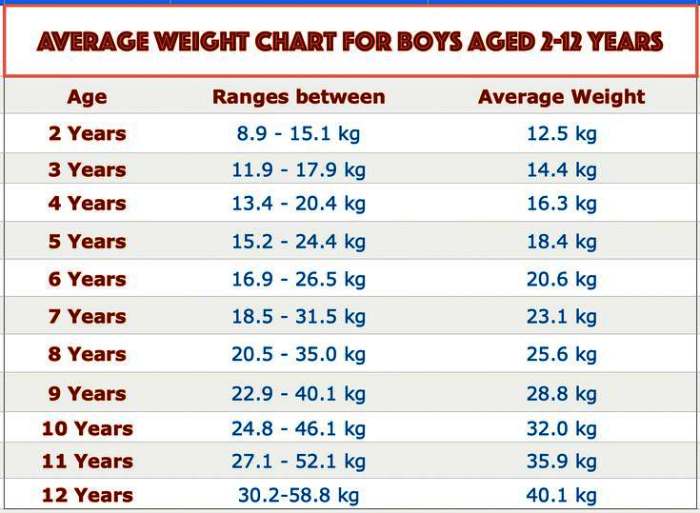What is the average weight for an 11-year-old boy? Navigating the world of children’s growth and development can feel like trying to solve the world’s most complex puzzle. You’re particularly curious about the average weight of an 11-year-old boy. This weight can vary significantly, influenced by genetics, physical activity, diet, and overall health.
On average, an 11-year-old boy weighs anywhere from 56.2 to 123.5 pounds. However, it’s essential to remember that what’s important is not the number on the scale but your child’s health and happiness.
Let’s delve deeper into understanding this dynamic aspect of childhood development.
Contents
Understanding Children’s Growth Patterns:
Understanding your child’s growth patterns can help you better gauge if they’re developing at a healthy pace. Growth spurts significance, particularly during puberty, which is critical to remember.
It’s common for 11-year-old boys to experience dramatic changes in weight and height as they enter puberty. This period of rapid growth, known as a growth spurt, can sometimes make it challenging to determine what’s average.

Remember, every child’s development is unique. If you’re concerned, consult a healthcare professional who can provide insights based on your child’s growth trends.
Also, promoting a balanced diet and regular exercise can contribute to healthy growth. So, don’t just focus on numbers; pay attention to overall well-being.
Also, check out the Average Weight for a 15-Year-Old Girl.
Factors Influencing an 11-Year-Old’s Weight:
The weight of an 11-year-old boy isn’t determined by age alone; it’s influenced by various factors you need to consider.
- Genetic Influence: Genetics play a significant role in a child’s weight. If obesity or leanness runs in the family, the child is likely to inherit these traits.
- Dietary Habits: What a child eats greatly affects his weight. Regular consumption of high-calorie, low-nutrient foods can lead to weight gain.
- Physical Activity: An active child tends to have a healthier weight than a sedentary one. Regular exercise helps burn calories and build strong muscles and bones.
You must understand these factors to maintain your child’s optimal weight and overall health. These aren’t exhaustive but provide a good starting point to better understand your child’s weight.
Average Weight Statistics for 11-Year-Old Boys:
While it varies greatly due to the factors above, you’ll find that the average weight for an 11-year-old boy is typically around 79.2 pounds. However, weight variations exist due to genetics, diet, physical activity, and cultural differences.
To better understand this, take a look at the below table:
| Country | Average Weight | Cultural Differences |
|---|---|---|
| USA | 80.5 pounds | High fast food consumption |
| India | 70.5 pounds | Vegetarian diet common |
| Japan | 74.9 pounds | Fish-based diet |
| Australia | 78.2 pounds | Outdoor activities popular |
| France | 77.1 pounds | Balanced diet, smaller portions |
When to Be Concerned About Your Child’s Weight:
If your 11-year-old boy’s weight significantly deviates from the average, you mustn’t ignore it. Weight issues can lead to health risks, and being overly underweight or overweight may be cause for concern. You need to look out for obesity indicators and be aware of issues like weight-related bullying.
You should be concerned if you notice:
- Your child’s BMI (Body Mass Index) is above the 95th percentile or below the 5th percentile for age and sex.
- Your child is experiencing physical discomfort or difficulties due to weight.
- Signs of emotional distress, such as withdrawal or signs of bullying due to weight.
A healthy weight is essential for your child’s overall health. Don’t hesitate to consult with a healthcare provider if you’re worried.
Promoting Healthy Weight in Preteens:
Promoting healthy habits that ensure their well-being is essential in managing your preteen’s weight. It’s crucial not only to focus on a balanced diet but also to incorporate physical activities into their routine. Nutrition education plays a significant role in this process.
Here’s a simplified guide to achieving this:
| Nutrition Education | Physical Activities | Benefits |
|---|---|---|
| Teach food groups | Encourage sports | Builds strength |
| Promote hydration | Walk and bike rides | Enhances endurance |
| Explain portion control | Organize play dates | Encourages socializing |
| Discourage junk food | Promote dance, yoga | Boosts flexibility |
| Encourage fruits, vegetables | Family fitness activities | Fosters family bonding |
Frequently Asked Questions:
It would be best to consider balanced lunchboxes with lean proteins, fruits, vegetables, and whole grains. Don’t forget portion control for snacks. Foods like nuts, yogurt, and fruit can be great for maintaining energy levels throughout the day.
You should encourage your 11-year-old boy to engage in at least an hour of physical activity daily. Exercise benefits include improved health and focus. Sports choices could range from soccer to swimming, whatever he enjoys.
Genetic factors significantly impact your child’s weight. Hereditary influence can dictate body type and metabolic rate, contributing to weight variations. However, lifestyle factors also play a critical role in a child’s weight and health.
Yes, an 11-year-old boy needs certain vitamins and nutrients for healthy growth. Iron intake is crucial for his blood cells. Vitamins, especially C and E, boost immunity and overall health.
Start by promoting body positivity and healthy habits, not specific weights. Discuss media’s impact on body image. Encourage him to focus on feeling good and healthy rather than comparing himself to unrealistic standards.
Conclusion:
In a nutshell, the average weight for an 11-year-old boy varies greatly due to factors like genetics, diet, and physical activity. However, it typically hovers around 79.2 pounds.
Don’t fret if your child tips the scales a bit – focusing more on promoting healthy habits rather than pinpointing an ‘ideal’ weight is crucial.
Remember, every child grows at their own pace, so it’s not a one-size-fits-all situation.

Santhan, known to many as Linda, combines her personal training expertise with exceptional motivational coaching skills. Her articles are not just informative but also incredibly inspiring, encouraging readers to take action and pursue their fitness goals. Linda’s unique approach to writing integrates practical fitness guidance with motivational elements, making her content both useful and uplifting.
